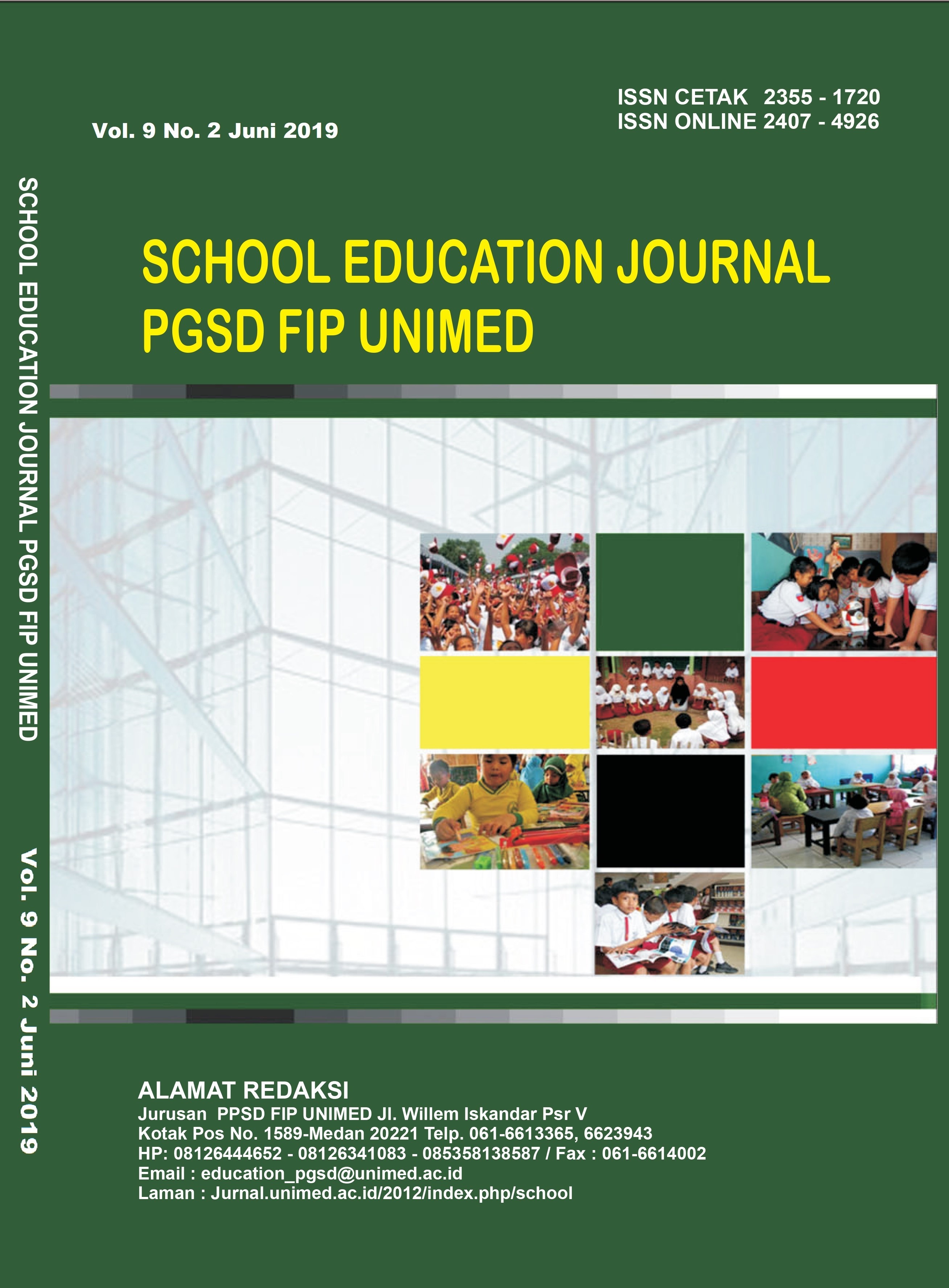MENINGKATKAN KETERAMPILAN MENULIS KARANGAN DESKRIPSI MELALUI MODEL PEMBELAJARAN CTL PADA SISWA KELAS V DI SDN 101766 BANDAR SETIA
DOI:
https://doi.org/10.24114/sejpgsd.v9i2.13704Abstract
This study aims to improve the writing essay skills through the CTL learning model for fifth grade students in 101766 Public Elementary School Bandar Setia. CTL learning model is a learning model by linking between subject matter with real life that occurs in the environment of students. This research is in the form of Classroom Action Research. The subjects of this study were fifth grade students of state elementary school 101766 Bandar Setia. The average score of the essay writing test in the initial conditions is 61.73 with classical completeness of 30.76% in the first cycle of the class average value to 70.76 with the classical percentage of 65.38%. In the second cycle the average value of the class becomes 80.00 with a classical percentage of 88.46%. The researcher hereby states that the use of the CTL learning model in the second cycle of success has reached 85% so that the learning process using the CTL learning model is successful. Keywords : Skills, writing, learning, Contextual Teaching And Learning.Downloads
Published
Issue
Section
License
Authors whose manuscripts are approved are approved as follows:
The publication rights for all journal manuscript materials published/published on the SEJ (School Education Journal) E-Journal site are held by the editorial board with the author's knowledge (moral rights remain with the manuscript authors).
The formal legal requirements for accessing this electronic digital journal article are subject to the terms of the Creative Commons Attribution-ShareAlike (CC BY) license, which means that E-Journal SEJ (School Education Journal) has the right to store, transfer media/format, manage in the form of a database, maintain, and publish articles without asking permission from the author as long as the author's name remains as the copyright owner.
Manuscripts published/published electronically are open access for educational, research, and library purposes.

